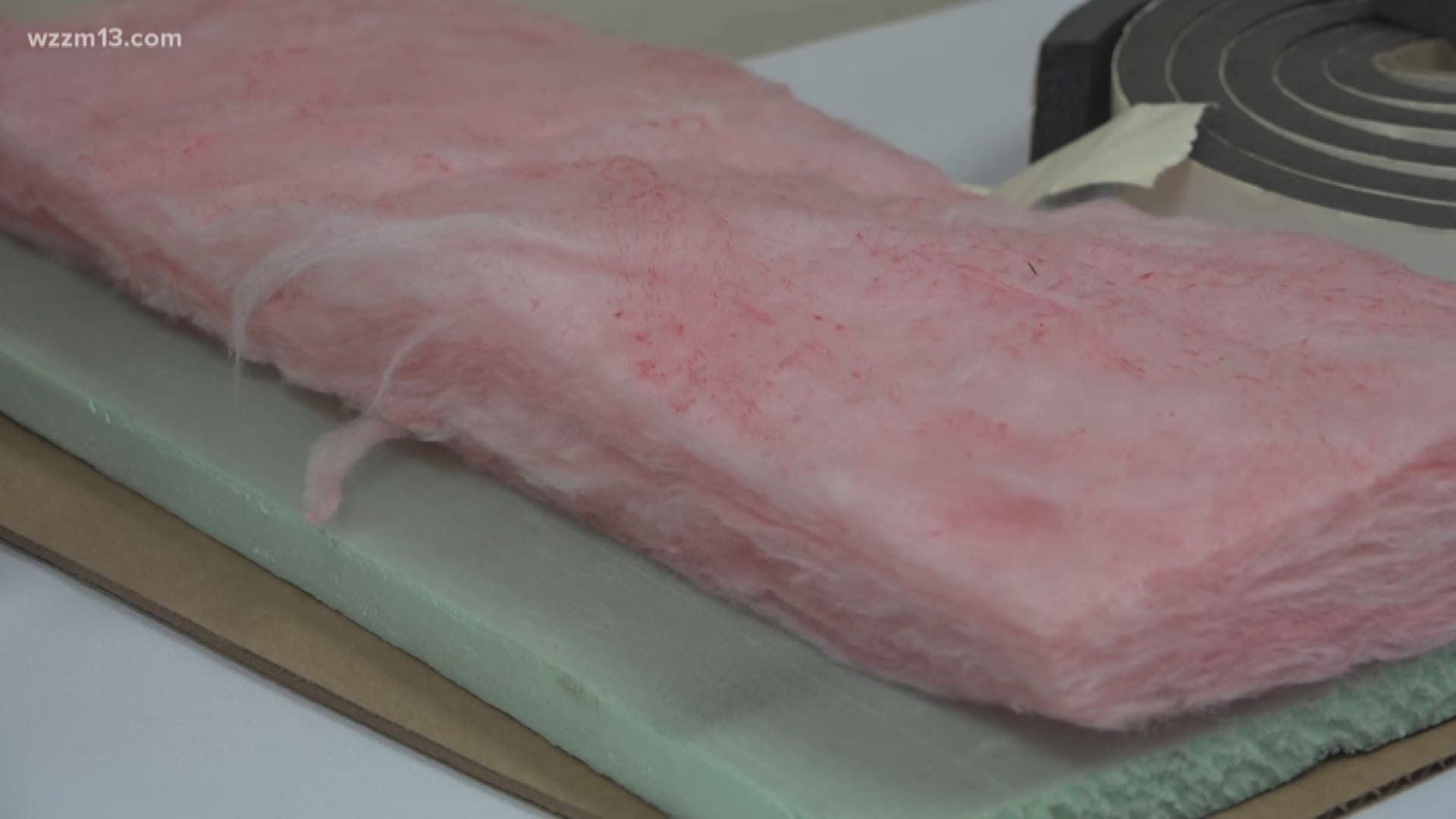GRAND RAPIDS, Mich. — High heat bills, broken-down appliances and frozen pipes are just a few things people are plagued by during winter storms. However, Mike Zamarron of Home Repair Services in Grand Rapids says it doesn’t have to be that way.
The organization located on South Division street offers free classes for Kent County residents to learn hands-on home repair, and Zamarron believes people can DIY their way through the polar vortex. He said you just need the right materials.
“Some foam can for $4, a roll of foam tape for $4, a plastic around window kit is $4, so these are really inexpensive things,” Zamarron said.
These materials can be used to “air-seal” homes, keeping the warm air in and the cold out. “The easiest thing we can do is air-sealing…seal those gaps up to stop that cool air from coming into the house,” Zarmarron said.
Air sealing can be done on windows or doors through weather stripping, caulking, taping and more. Zamarron recommends peelable caulk for those who don’t want to tear the renovations out when the weather warms.
Frozen pipes are another popular winter inconvenience. Zamarron said to test for frozen pipes by tapping them with a screwdriver. Normal pipes will make a light noise, whereas frozen pipes will make a deeper, fuller sound. He said to prevent pipes from freezing, wrap them in insulation, or for sinks, just keep the water running.
“Just a little more than a drip, so it’s steady…because just like the water going down the river, moving water doesn’t freeze,” Zamarron said.
While he said it’s rare, Zamarron admitted that even household appliances like laundry and dish washers aren’t winter-proof. “If the room is really cold then there’s always water in the pump in a washing machine and in a dish washer and that could potentially freeze.”
Zamarron said the best way to protect your home is to follow tips like these and be attentive to potential problem areas.
“Change that furnace filter, do a walk around the house and check it out. That’s what we try to encourage homeowners to do," Zamarron said.
►Make it easy to keep up to date with more stories like this. Download the 13 ON YOUR SIDE app now.
Have a news tip? Email news@13onyourside.com, visit our Facebook page or Twitter.

